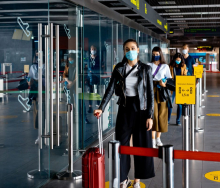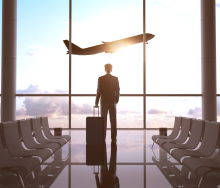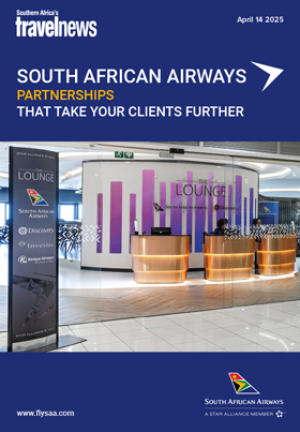As SAA hunkers down to start implementing its business rescue plan, many voices have been heard stating the opinion that the airline should be shut down. I think these opinion-holders lose sight of SAA’s strategic importance. Obviously it cannot continue to run in its current guise of being a cash cow (allegedly) for vested interests, but perhaps a majority shareholder that can run an airline profitably and efficiently without being subject to pressures from outside could make SAA both relevant and not a drain on the fiscus.
SAA is not simply an airline that should be profitable. Yes, it should be profitable, but it also plays a much larger strategic role in attracting business to and facilitating business in SA. It is, as such, a tool for soft power in our region in order to advance the interests of South African business. This is not just outbound, but also in terms of encouraging business travellers from other countries and regions to visit us. The airline creates connectivity, and not just for South Africans, also for neighbours coming into the country and the rest of the world.
In conversation with a client in Europe they lamented the possibility that they would have to find alternative routes to Southern Africa to look at opportunities in the region. SAA had always provided them with a reliable means of reaching the broader Southern African region, and now, rather than travelling via Johannesburg (and doing business here) they will be looking at travelling via Turkey, Ethiopia or Kenya, and bypassing South Africa in the process.
The rest of Africa absorbs over 40% of all South Africa’s value-added exports. That amounted to over R300bn in 2019. To reduce our access to these countries makes no sense, especially as we stand on the cusp of the Africa Continental Free Trade Area being implemented, which will give us more competitive access to key markets in East and West Africa. We are highly reliant on our neighbours for exports and it is critical to have an airline that covers those routes. If SAA stops servicing these routes, the regulators and government need to step in and ensure other airlines take up these routes, but that may not be easy or seamless. Who would? Are they large and attractive enough for major global airlines to bother with? If not, do we rely on ‘market forces’ and the emergence of small regional and sub-regional carriers to pick up the slack? If the answer is that there are reliable, relatively cost-effective players that can step in, perhaps we can dump SAA. If not, we need SAA or some incarnation of it. Losing it would result in serious reorganisation for South African corporates, and losses for business and tourism.
We should always remember that South Africa is at the very bottom of the least-connected continent. With SAA, it gives South Africa much-needed connectivity to the rest of the world. If the airline is summarily shut down, this would essentially result in shutting the country off from operating competitively within much of Africa and the rest of the world. ‘Opening up our skies’ as some have suggested, may work for a global hub like Singapore, but we’re not a global hub. We’re a sub-regional hub, at best.
Of the routes confirmed, some of the most critical destinations for South African companies include Maputo (and onward to other Mozambican cities), Entebbe (Uganda), Nairobi, and those of our immediate neighbours in SACU, Zimbabwe, Zambia and Malawi. Mozambique will potentially unlock US$130bn in oil and gas investment over the next decade, Uganda is an emerging oil producer, Kenya is the key market in East Africa, our contiguous neighbours imported R228bn of goods from SA in 2019, with 94% of that value-added. That’s R20bn more than we exported to our BRICS partners, and a hefty chunk of that was raw or semi-processed minerals.
Thus, whilst SAA in its current financial mess is not a going concern, it plays a crucial role in ensuring that South Africa’s already beleaguered industrial sector is able to retain connectivity with key trade partners and emerging hubs in Africa that are critical to our recovery. I don’t think we can simply rely on ‘market forces’ to ensure that these routes are retained and operate smoothly. The risks are simply too big.
















